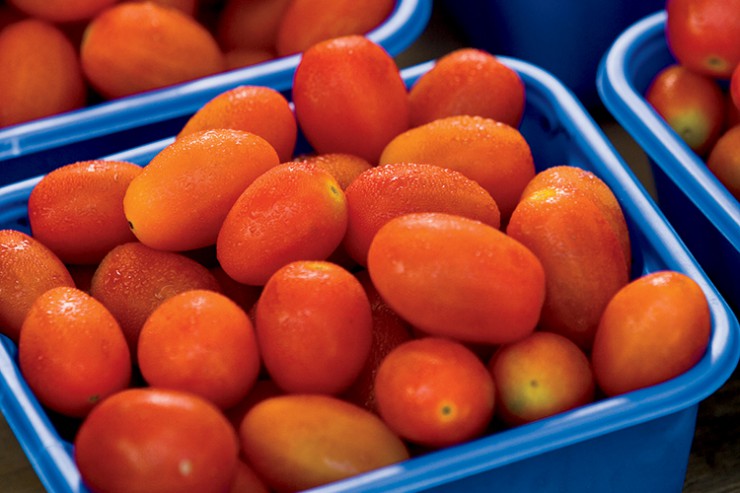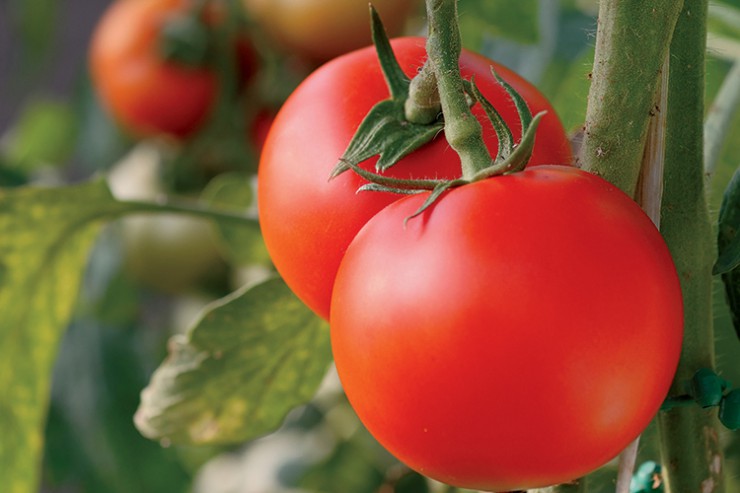Home > Florida > Florida Crops & Livestock > Florida Tomato Industry Plants the Seeds of Safety
Florida Tomato Industry Plants the Seeds of Safety
In partnership with: Florida Department of Agriculture and Consumer Services

In 2011, the FDA Food Safety Modernization Act (FSMA) was signed into law. It is the most sweeping reform of food safety laws in the U.S. in 70 years, shifting the focus from responding to food contamination to preventing it.
But the Sunshine State has been way ahead of the curve when it comes to food safety. In 2008, after five years of research and planning, Florida became the first state in the country to adopt its own comprehensive program with mandatory government inspection and audit for tomato handling, production and packing. Today, it’s still the only such mandatory program in the U.S.
“Florida is the largest fresh tomato-production state in the country,” says Reggie Brown, manager of the Florida Tomato Committee. “We began working on these food safety initiatives in 2003 because as an industry, we felt that we would be well served to be aggressive and proactive. We collaborated with the academic community, the industry, the FDA and the Florida Department of Agriculture and Consumer Services to develop scientifically based standards and examine the real problems, not hypothetical ones.”
Those standards – Good Agricultural Practices (GAPs) and Best Management Practices (BMPs) – were adopted in 2008. Coincidentally, it was the same year that a widespread salmonella outbreak sickened hundreds across the country. While Florida tomatoes were first thought to be the source of the outbreak, it was later determined that jalapeno peppers from Mexico were the culprits. Unfortunately, for the Florida tomato industry, the damage was done.
“The outbreak was an economic disaster for domestic tomato producers, resulting in $100 million in lost sales and crops,” Brown says. The industry was already developing their GAPs and BMPs at the time, and the outbreak brought home the importance of adopting the standards and making them mandatory.
“It’s critically important that programs like this be developed, and attention be paid to food safety risks in order to maintain the public’s confidence in the fresh food supply,” Brown says. “Fresh produce consumption is key to improving public health, and any concerns or fears people have about consuming them because of food safety issues will have a negative impact on public health.”

Ripe and Ready
How do the program and the GAPs and BMPs protect the integrity of the tomato supply? There are several components, including education, training, and regulatory inspection and audits by the Florida Department of Agriculture and Consumer Services. The goal is to ensure safe handling, production and packing, and that means avoiding the major risks of contamination. Brown says those risks include water-quality issues, animal intrusion, and worker safety and hygiene.
“It’s also critically important that you have a functional traceability process, so that if there is an item in question, you can identify where it is or where it went in the marketplace to minimize any collateral damage from a general accusation about a product rather than a specific lot of product,” Brown says.
The efforts of the Tomato Exchange in developing these safety initiatives and the Florida tomato industry’s acceptance of them are a model for other states and produce growers to follow.
“Tomatoes are everywhere,” Brown says. “They’re on hamburgers, in salads, on sandwiches. In fact, tomatoes are the third most consumed vegetable behind potatoes and lettuce. In Florida, we’re proud to be proactive in ensuring the public’s confidence in our product.”



